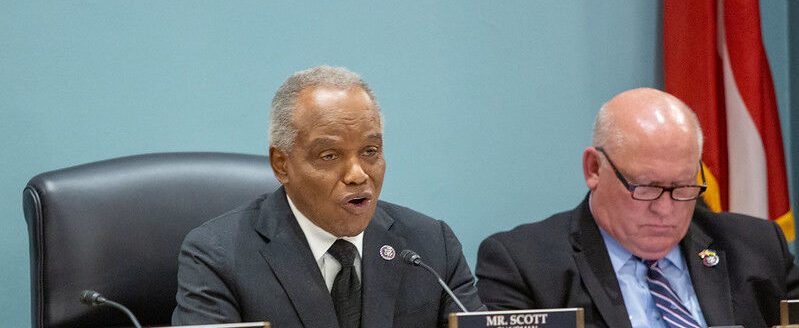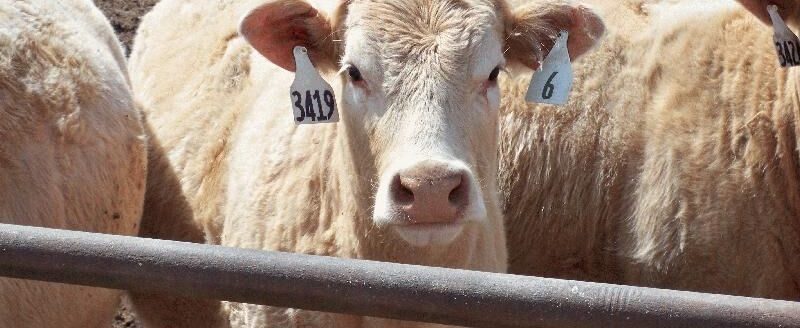United States Sens. Deb Fischer, R-NE; Chuck Grassley, R-IA; Jon Tester, D-MT; and Ron Wyden, D-OR, recently released an update of their Cattle Price Discovery and Transparency Act. They first jointly introduced the bill in November 2021.
“Our family farmers and ranchers have told us about the need for both robust price discovery and transparency in the cattle markets. The updates to our legislation incorporate a variety of stakeholder feedback to achieve our goal of ensuring more fairness in cattle markets. It’s encouraging to see our bill gain momentum and I am hopeful we will have a hearing on this important legislation in the Senate Agriculture Committee in the coming weeks,” said Fischer, a member of the Senate Agriculture Committee, in a press release announcing the modified legislation.
Grassley, a member of the Senate Agriculture Committee and ranking member of the Senate Judiciary Committee, said, “I frequently hear from Iowa’s independent cattle producers about their struggle to get a fair price for their cattle while the nation’s four largest packers operate with record profits. I pushed for hearings in the Senate’s Agriculture and Judiciary committees to shine a light on these unfair market practices, and I’ve continued working with a bipartisan group of senators to develop a solution.
“Our latest proposal comes after months of working with staff at the U.S. Department of Agriculture to make technical changes that will allow them to best implement the bill. It takes several steps to improve cattle price transparency and will make much-needed market reforms to help independent producers in Iowa and across the country. This bipartisan bill is the best opportunity we have to make real reform in the cattle market this year, and I’ll continue to work with my colleagues to get this across the finish line.”
Tester said, “For too long, large corporations have raised prices on working families while giving Montana ranchers the short end of the stick. Increasing price discovery will give producers more control and better information when they sell their livestock, and is a key step in making markets more competitive. Montana ranchers raise the best beef in the world, and it’s about time they got a fair cut for their premium product.”
Wyden, chair of the Senate Finance Committee, noted, “Oregon’s ranchers shouldn’t face an unfairly tilted marketplace that favors corporate meat packers and undercuts their small family businesses from producing nationally renowned beef for consumers. This bipartisan legislation shows how both parties can come together to level the playing field by restoring market fairness, efficiency, and transparency for U.S. cattle ranchers.”
Bill updates
The updated bill would:
1. Require the Secretary of Agriculture to establish five to seven regions encompassing the entire continental U.S., then establish minimum levels of fed cattle purchases made through approved pricing mechanisms. Approved pricing mechanisms are fed cattle purchases made through negotiated cash, negotiated grid, at a stockyard, and through trading systems that multiple buyers and sellers regularly can make and accept bids. These pricing mechanisms will ensure robust price discovery and are transparent.
2. Establish a maximum penalty for covered packers of $90,000 for mandatory minimum violations. Covered packers are defined as those packers that during the immediately preceding five years have slaughtered five percent or more of the number of fed cattle nationally.
3. The bill also includes provisions to create a publicly available library of marketing contracts, mandating box beef reporting to ensure transparency, expediting the reporting of cattle carcass weights, and requiring a packer to report the number of cattle scheduled to be delivered for slaughter each day for the next 14 days. The contract library would be permanently authorized and specify key details about the contents that must be included in the library like the duration of the contract and provisions in the contract that may impact price such as schedules, premiums and discounts, and transportation arrangements.
Several national organizations expressed support for the updated bill.
U.S. Cattlemen’s Association President Brooke Miller thanked the senators for pursuing the legislation, which she said “strengthens the bottom line of the U.S. cattle producer. There has never been this much momentum for industry change, both in the countryside and in the Capitol. USCA stands with county, state, and national producer associations across the U.S. in supporting mandatory cash trade minimums—a concept that is also supported by the majority of Senate Agriculture Committee members…”
National Farmers Union President Rob Larew said, “Rampant consolidation in the cattle industry has made pricing in the cattle market increasingly opaque. Fair and competitive markets rely on price discovery and transparency. For farmers and ranchers to bargain effectively with packers, they need access to reliable, accurate pricing information. This bill would shed light on the market and bring about greater fairness. NFU thanks Senators Tester, Grassley, Fischer, and Wyden for their continued leadership on this issue. The bill improves upon the version from November 2021, and we encourage swift action by the Senate and House on this legislation.”
R-CALF USA strongly opposed the original bill and called on the Senate Agriculture Committee to reject the bill pending the conclusion of R-CALF USA’s Cattle Antitrust Litigation. R-CALF USA expressed reservations about the modified bill, saying in a statement, “While we reserve our opinion regarding the modified compromise bill pending our ongoing analysis, we remain concerned that at its heart, the proposal authorizes the USDA to take up to two more years before it even establishes minimum cash volume requirements; to set those minimum requirements at the same inappropriate level that they’ve been at during the past two years; and then to keep them at that inappropriate level following the required review after the first two years of implementation and periodic reviews after each five-year increment.
“We were hoping Congress would provide a measured response to this serious crisis and we will continue wading through this complicated proposal to determine if it provides any meaningful reform worthy of America’s independent cattle producers’ support.”
The organization has since presented a review of the revised bill and recommendations to congressional offices.
Read the amended bill text at https://bit.ly/36YqtdJ.
Sign up for HPJ Insights
Our weekly newsletter delivers the latest news straight to your inbox including breaking news, our exclusive columns and much more.
Shauna Rumbaugh can be reached at 620-227-1805 or [email protected].



